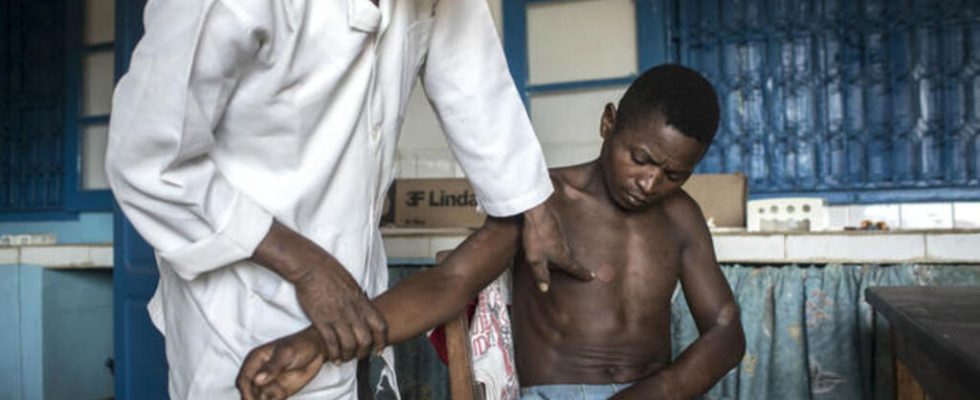More than 20 to 25,000 cases detected each year on the African continent alone. Leprosy mainly affects places of extreme poverty. It is in these places that we find the most serious cases of this disease, notably in Benin or Ivory Coast, where 25% of people affected by leprosy have developed irreversible disabilities. Access to patients is a real issue.
2 mins
The fight against leprosy in Africa is particularly complicated because of three problems, explains Dr. Christian Johnson of the Raoul-Follereau Foundation, speaking to Victor Cariou from the Africa editorial team.
“ First, there is the issue of geographic sensitivity. These are the sick people who live at the last kilometer, that is to say, you take the car, you can no longer, you take the motorbike, you can no longer and, finally, you have to continue on foot to get to the most distant village.
The second problem is financial sensitivity in all our health systems in Africa. The patient must pay, and we have the problem of rural populations, they are poor populations. And as a result, this problem of financial accessibility leads to late screening.
In addition to this financial accessibility, we have the problem of cultural accessibility. For many patients, leprosy is due to a spell. So, when we have a leprosy spot, we will not be told ‘go see the health worker’, we will go see the traditional healer and all this will lengthen the time before detection. These are what we call operational problems, which mean that today we still have 25% of patients who are detected late with disabilities. »
Also listenLeprosy or the epidemic of exclusion
Like every year, this last weekend of January, awareness-raising operations against this scourge are being carried out. Days organized under the aegis of the Raoul Follereau Foundation.
